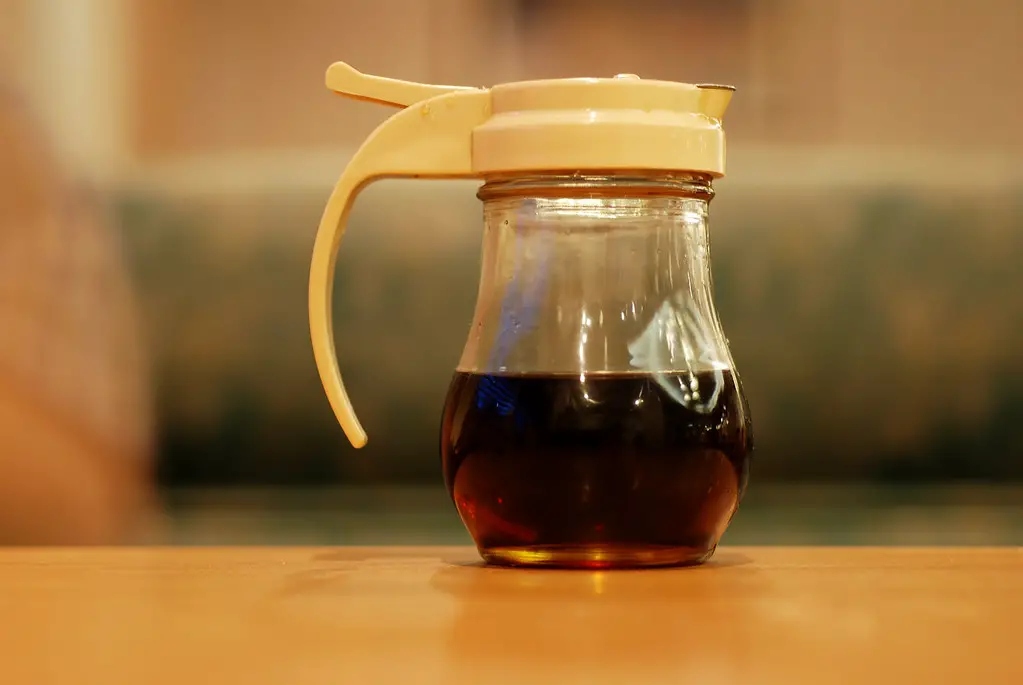Have you ever had that moment where you’re cleaning out your cupboards and you come across a half-full bottle of vinegar? You’re not sure when you bought it, but you know you don’t need it anymore. So, how do you dispose of vinegar?
In this post, I’ll walk you through everything you need to know about how to dispose of the vinegar that you don’t need anymore. We’ll cover the basics of what vinegar is, how to tell when it’s gone bad, and the best ways to get rid of it. By the time you’re done reading, you’ll be an expert on all things vinegar disposal!
How To Dispose Of Vinegar?
Vinegar is a household staple with a multitude of uses, from cooking to cleaning. But when it’s time to get rid of vinegar, how should you do it? Here’s a guide on how to dispose of vinegar safely and responsibly.

When it comes to vinegar, there are two main types: white vinegar and apple cider vinegar. Both are made through the fermentation of ethanol, but white vinegar undergoes an additional filtering process. As a result, white vinegar is less acidic than apple cider vinegar.
The acidity level of vinegar makes it a great cleaner, but it also means that it can be corrosive. For this reason, it’s important to be careful when handling vinegar. When disposing of vinegar, always pour it down the drain with plenty of water to dilute it.
If you have a lot of vinegar to dispose of, you can also contact your local waste management company to see if they have special instructions for vinegar disposal.
What Things You Can Do With Vinegar Other Than Disposing Of?
Vinegar is one of the most versatile household ingredients around. It’s a popular product and the annual consumption of this is increasing by 29% which itself tells about its use. Not only can you use it for cleaning and cooking, but there are also a whole host of other uses for vinegar that you may not have thought of. Here are just a few of the things that you can do with vinegar:
1. Use in cooking:
Cooking with vinegar is one of the easiest and most common ways to use it. When used in cooking, vinegar adds flavor, tenderizes the meat, and serves as a natural preservative. It is also a key ingredient in many salad dressings, marinades, and sauces.
To add flavor to food, vinegar should be used sparingly. A dish that contains vinegar can easily become overpowered by other flavors because vinegar has a very strong flavor.
When cooking with vinegar, be sure to add it at the end of the cooking process, as it can lose its flavor if it is cooked for too long.
2. Use as a cleaning agent:
The versatility of vinegar makes it one of the best cleaning agents available. It’s inexpensive, eco-friendly, and effective at cleaning a variety of surfaces.
Vinegar can be used to clean windows, mirrors, and stainless steel. It’s also great for removing stains from carpets and upholstery. To clean with vinegar, simply mix equal parts vinegar and water in a spray bottle. Once the mixture has been prepared, apply it to the surface you are cleaning with a cloth or sponge.
You can increase the vinegar in the mixture for tougher cleaning jobs. A greasy stovetop can be cleaned by mixing vinegar and water, for example.
3. Gardening use:
Vinegar can be used in the garden in a number of ways, from killing unwanted insects to fertilizing plants.
Vinegar can be used to kill many common garden insects, including aphids, slugs, and snails. A spray bottle filled with vinegar and water can be used to spray pest-infested plants. Vinegar can also be used as a preventative measure; spraying plants with a vinegar solution will make them less attractive to bugs in the first place.
In addition to killing insects, vinegar can also be used to fertilize plants. Vinegar is rich in nutrients that plants need and rich in acid. So, it can be used to fertilize acid-loving plants such as daffodils, hydrangeas, blueberries, etc. Vinegar fertilizer should be prepared with raw, organic, unfiltered apple cider vinegar.
If you’re looking for a safe, natural way to protect your plants from pests, give vinegar a try. It’s an inexpensive and easy solution that can make a big difference in the health of your garden.
4. Medical use:
Vinegar has a long history of being used as a natural remedy for a variety of ailments, and recent studies have shown that it can be effective against bacteria and fungi.
Antimicrobial properties in vinegar can kill bacteria, viruses, and fungi. Vinegar can also be used to treat lice, acne, and dandruff.
Vinegar is sometimes used as a home remedy for colds, sore throats, and other infections. Vinegar can also be used to soothe sunburns and insect bites.
The National center for biotechnology information study shows the medical uses of vinegar and how it’s beneficial for some serious problems like Cardiovascular issues, antitumor Activities, and blood glucose control.
5. Use as a Natural disinfectant:
Vinegar is a great natural disinfectant. It’s inexpensive and it’s easy to find. Vinegar is also a great way to get rid of mold and mildew.
To use vinegar as a disinfectant, simply dilute it with water. Make it in a ratio of 1:1. Once you’ve mixed the vinegar and water, you can use it to clean any surface in your home.
Vinegar is especially effective at killing E. coli and other harmful bacteria. So, if you’re looking for a natural way to disinfect your home, vinegar is a great option. You can further see the uses of vinegar as a disinfectant in this study.
6. Vinegar as Clarifying Hair Treatment:
Vinegar is a natural acid, which makes it perfect for removing build-up from your hair.
An apple cider vinegar hair treatment can help to remove all of this build-up, leaving your hair looking and feeling refreshed. Vinegar is also great for balancing the pH levels in your hair, which can help to prevent damage and keep your hair healthy.
To use vinegar as a clarifying hair treatment, simply add 1/2 cup of vinegar to 1 cup of water and mix well. The mixture should be applied to your hair and scalp and left on for about 15 minutes. After shampooing your hair, rinse it thoroughly with warm water.
You should use vinegar sparingly when treating your hair as a clarifying treatment. Too much vinegar can actually strip your hair of its natural oils, so it’s important to find the right balance.
Can I recycle vinegar bottles?
Vinegar bottles can be recycled and reused for many different things. In fact, recycling vinegar bottles are a great way to reduce waste and help the environment.

Here are some great ideas for recycling vinegar bottles:
- Use them as planters for your herbs or flowers.
- They can be used to store homemade cleaning solutions.
- Use them to make homemade crafts, like bird feeders or wind chimes.
- Donate them to a local school or community center.
So, next time you finish a bottle of vinegar, don’t throw it away! recycle it and give it a new life.
FAQs
When should you throw away vinegar?
Vinegar shelf life is almost indefinite and due to the high acidity of the vinegar, it’s also self-preserving. But you should throw away vinegar when it starts to turn brown or when it starts to develop an off odor.
Can I dump white vinegar outside?
No, you should not pour white vinegar outside as it can harm plants and animals. As vinegar has acidity which can affect some materials and surfaces. If you need to get rid of white vinegar, you can water it down and pour it down the drain.
Is vinegar safe for the environment?
Yes, vinegar is safe for the environment. Here are some reasons why:
Vinegar is made from renewable resources like corn, apples, and grapes.
Vinegar is biodegradable and doesn’t pollute the air, water, or soil.
Vinegar doesn’t contain harmful chemicals or toxins.
So overall, vinegar is a safe and environmentally friendly product.
To Conclude
In conclusion, properly disposing of vinegar is important to avoid harming the environment. There are a few different ways to dispose of vinegar, depending on the amount you have. If you have a small amount, you can pour it down the drain with plenty of water.
If you have a large amount, you can contact your local waste management company to find out the best way to dispose of it.
My name is Ella Vicedomine and I’m the founder of this blog. The aim is to start this informational blog to guide people on how to dispose of waste things around in the house but in the right way.

